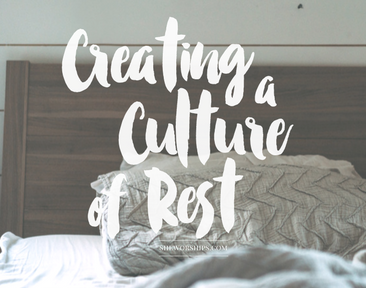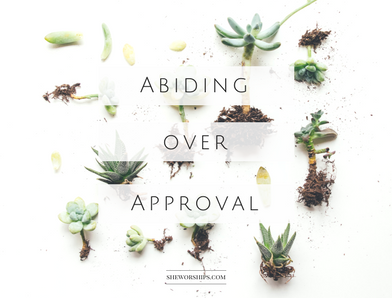In case you hadn’t heard, last Monday was kind of a big day for me. I successfully defended my dissertation, which means I am officially DONE with my PhD! WOOHOO! This moment has been four and a half years in the making, so I’ve been on cloud nine all week!
 <—Cue the cheesy grin!
<—Cue the cheesy grin!
Right before I walked into the hearing, I ran into a school administrator who has known me since the beginning. She couldn’t believe I was defending my dissertation while 7 months pregnant, and she remarked,
“You must be some sort of superwoman!”
I know she meant to encourage me, but I didn’t feel like a superwoman at all. My pregnancy has left me constantly short of breath, and I caught a cold the day before my defense, so my voice sounded like a man. I’ve also had trouble sleeping, so I was physically exhausted.
In other words, I wasn’t sprinting across the finish. I was limping. Not exactly superwoman behavior.
Now, I’ve never put much stock in the whole “superwoman” concept. Everyone has struggles, no matter how well put together they appear. What I have put stock in–in the past, anyway–is the notion that some women have a higher capacity than others.
To me, it seems like some women are just able to do MORE than other women. They’re the women whose homes always look perfect, whose cooking is always amazing, who lead 18 different Bible studies, women’s groups, and school organizations, and they’re the first to spearhead a meal calendar when someone is in need…and of course, their meals are all homemade Pinterest masterpieces (meanwhile I’m all, Is Stouffers lasagna ok??).
They’re the kind of women you marvel at, wondering how on earth does she do it all??
I have never felt like a high capacity woman. Most days I’m just trying to get through the day. I am not a good cook. I’m not terribly organized, and I feel tired ALL THE TIME.
However, comments like the “superwoman” one make me wonder if some women see me as a high capacity woman who does a lot more than average. As much as I envy other women who seem more organized, more accomplished, and less in need of sleep than I do, I suspect some women look at me and feel the same way.
Just think for a moment about your own life–you may not feel like a high capacity woman, but how often do other women ask you, “How do you do it all? How do you manage it all?” If that’s you, then you might be a “high capacity” woman too.
I’ve been thinking about this a lot–the disconnect between how I feel and how other women see me–and I’ve come to a few conclusions. The first is for those of you who, like me, are frequently asked How do you do it all?
#1 Don’t be afraid to share your weaknesses.
The more people seem impressed by my high capacity, the more I have to pause and consider what image I’m putting out there. On the one hand, I am a writer, which means my labor is very visible. Lots of people get to see what I am accomplishing, which might give the impression that I am doing more than others. Or, that I am doing it on my own.
But neither is true. I know a lot of women who labor from dawn til dusk working a full or part-time job, taking care of their children, caring for other people’s children, taking care of their parents, making healthy food for their families, and serving their neighbors and their churches. They are doing a lot–probably much more than I do–but it’s behind the scenes. Although their efforts are less visible, these women are excellent stewards of their time and resources.
Plus, I have help. Throughout most of my PhD, my husband and I split our days with our son. Now, my son has free child care three days a week. And, I have family close by. I am not “doing it on my own” by any stretch of the imagination.
That’s why I feel a bit like a fraud when other people comment on my accomplishments, as if I am doing more than others. It makes me feel slightly dishonest, which is why I’ve tried to be open about my weaknesses and my struggles. It’s not that I want to belittle the ways that God is using me, but I do want to be honest, and I want the the glory to belong to God.
In case you think I’m being overly modest, the apostle Paul did the exact same thing. He was a “high capacity” man who was educated, well-traveled, and launched the early church. In the face of his many accomplishments, he regularly reminded believers of his own sin and weaknesses, and that God’s power was only perfected in his weakness (2 Cor. 12:9). I want to have the same witness.
It’s not about false humility. It is about pointing women to Christ, and to grace.
Now, for the rest of you who are thinking, “I am NOT a high capacity woman. No one has ever thought that about me–I am a hot mess!” (which is how I ACTUALLY feel much of the time), here are a couple thoughts for you:
#2 The “high capacity woman” is an illusion.
Some women are incredibly organized and excellent stewards of their time. That’s true. But you cannot know a woman’s capacity by looking at her. Like me, some women have lots of help. Or, some women’s accomplishments are more visible than others. Or, some women are able to do more in public because they do less at home, such as cooking simpler meals.
And then there are the women who do a lot, but at the cost of their health and well-being. They’re running themselves ragged to the point of exhaustion, so their busyness is an expression of something unhealthy in them. I’ve been in this category more often than I’d like to admit.
All of that to say, we need to stop measuring ourselves against other women. We need to stop comparing our personal lives to other women’s public lives. You can’t possibly know what another woman’s true capacity is, which leads me to me last point…
#3 God doesn’t care about your capacity.
Every woman has different gifts, different resources, and different seasons of life. In His grace, God only expects us to steward what He has given us (which includes our spiritual health and emotional well-being), and nothing more. Not to mention that sometimes doing less–like resting on the Sabbath–is really the thing God is asking of you.
I don’t know if “high capacity” is a real thing. Some people need less sleep than others, so maybe it is, maybe it isn’t. But whatever your capacity, know that God does not measure us by our capacity to do. He only deals with us in grace.
This Christmas season, when our capacities are especially stretched, I hope you will rest in that, my friend. There is grace.
Sharon
Sharon
Sharon
Shar
Sharon








Well said, Sharon.
Sharon, thank you for this. My friend Lesley Miller shared this post with me today, and it was such a timely read. Like you, I recently finished my PhD and have a toddler. Caring for my family, teaching college part-time, and leading a Bible study have me maxed out this semester, and yet I keep striving to function at a higher capacity. I have slowly been learning your lesson #3, which has been sweet for my soul, but sometimes I forget what I have already learned … you know what I mean? Thank you for your reminder.
I’ve struggled with this for a while. I love these three points. Way to sum it up well!
Thank you for this. I think that women feel guilty when they see someone they perceive as high capacity. They only see you out and about doing what you do best and looking great. I often times get people telling me I need to slow down or that I do too much. I tell them, with a laugh that they don’t see me being lazy all day in my pajamas. You are right that we should always be content with how God made us.
lol. I think I qualify. People do ask me how I do it all. It isn’t that I have superhero abilities. In reality, I’m really efficient with my time in the areas that people see, and I have the same mommy guilt over all the areas I drop (that no one sees) behind closed doors.